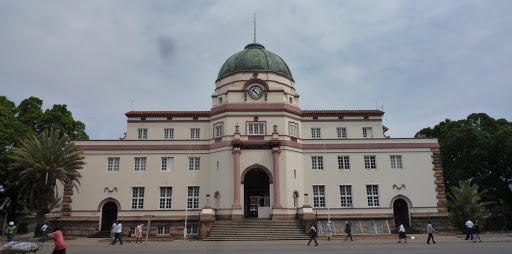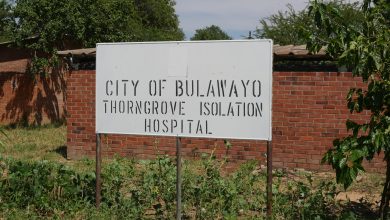Byo High Court Judge recuses himself from opposition activists’ public violence appeal

Bulawayo High Court Judge Christopher Banda-Dube has recused himself from hearing a court application for former deputy mayor Mlandu Ncube and his accomplices, where they are seeking to challenge their conviction over public violence.
Ncube and six others were convicted and sentenced by Bulawayo magistrate Sithembiso Ncube to 12 months in prison, six of which were suspended on condition of good behaviour and the remaining six were commuted to 210 hours of community service each.
Ncube, Felix Mhaka, Kunashe Muchemwa, Raymond Gombedza, Michael Mubasa, Takunda Madzana, and Erick Gono, through their legal representative, Prince Butshe of Mathonsi Ncube Law Chambers, had filed a notice of appeal at the Bulawayo High Court to overturn both the conviction and sentence.
The recusal by Justice Dube-Banda saw the matter being struck off the court roll.
According to the court papers, the public violence skirmishes, which happened in 2018, left more than 15 people injured, four vehicles damaged, and five office windowpanes destroyed at the then united MDC-T’s provincial offices in Bulawayo.
In their grounds of appeal, they argued that the lower court erred by relying on the evidence of accomplice witnesses without cautioning itself against the dangers of basing on uncorroborated proof.
“The court a quo erred at law when it adopted the boxing ring approach in apportioning blame on the appellants. The evidence led was just that of the State witness against that of the appellants. Wherefore, the appellants pray that the appeal be upheld and conviction be set aside,” argued Butshe.
The appellants argued that there was no direct evidence led by the State in court to prove that they violated section 36 of (1)(a) of the Criminal Law (Codification and Reform) Act.
“It is submitted that appellants were victims of circumstances and should not have been found guilty simply because of their presence on the premises. Appellants made it clear before the court a quo that they were present on the premises, but did not participate in the public violence,” said Butshe.
He further argued that as a matter of principle, the lower court should have ensured that the essential elements were proved beyond a reasonable doubt, and that witnesses corroborated each other’s evidence prior to convicting the appellants.
“In casu, if the court a quo had approached the evidence with extreme caution, which was in contradiction, the magistrate should not have found the appellants guilty. Accordingly, it is therefore submitted that this is not a proper case in which appellants should have been found guilty of contravening section 36 of the Criminal Code,” argued Butshe.
For the State, Kudakwashe Jaravaza opposed the application, arguing that the lower court did not err in finding all the appellants guilty as they were identified by all witnesses who testified.
“It is clear that the appellants were at the scene of the crime, there is no way that the complainants could have damaged their property or injured themselves and then incriminate the appellants. There is clear evidence on record which established that the fracas involved people who were known to each other, and the violence took place over a protracted period,” he said.
“It is my view that in a case of this nature, it was not necessary for the State to ascertain who did what, what was important was that the State was able to demonstrate that the appellants acted in common purpose with others to engage in criminal acts.”
Jaravaza said the appellants did not disassociate themselves from the unlawful actions of their colleagues.
“It is therefore my view that the court did not err in finding all the appellants guilty as they were identified by all witnesses who testified. Wherefore, I pray that the application be dismissed,” he said.






